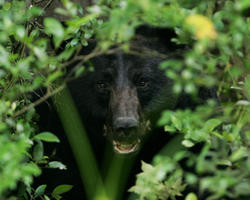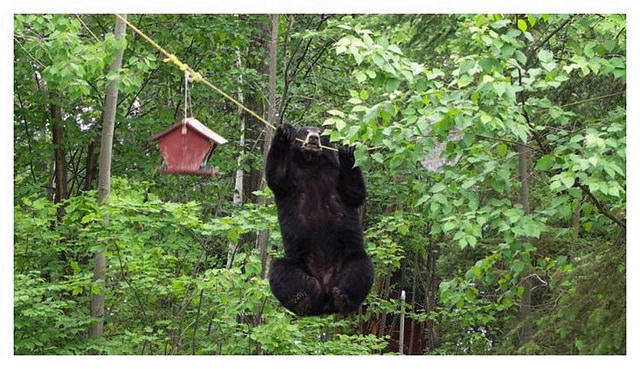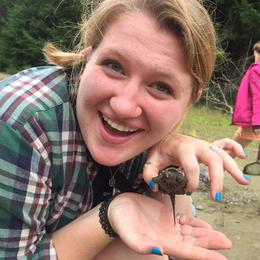Bears, they’re great!

The American Black Bear is more active than I ever thought during this time of year. There are so many interesting bear facts so I’ve decided to focus on some seasonal facts focusing on the activities of bears during this time of year.
Past Fall: In the late fall or early winter Black Bears prepare for hibernation, not because it is cold out, but because there is statrting to be a decrease of food. Food supply determines when they go into their dens, if it is a heavy nut and seed year they will enter later in November.
Dens: Typically located under the roots of fallen trees, in bush piles, or hollow trees. Unlike many of the childhood stories I was told, bear dens are rarely in protective caves. Their dens don’t need to be near anything particular, the bears would like them to be safe.
Hibernation: Black Bears can hibernate up to 7 months out of the year. During this period of time the bears don’t eat, drink, exercise, defecate, or urinate. Do to the lack of food intake their metabolic rate is cut in half. Their sleep rate drops from 60-80 beats per minute to 8-40 beats. This means they take one breath every 45 seconds. During hibernation they need to stay warm, so they keep their body temperate at 88-95oF. Mother bears specifically do this to care for her newborns.
Birth/Cubs: January is the birth month for Black Bears. Cubs, when born, weigh less than a pound, are about 7 inches long, their eyelids are closed, and they have no teeth. Mothers stay active during birth and they wake up and move in response to their cubs, they mother bear only sleeps when her cubs do. Mother bears can lose up to 40% of body weight when nursing in the winter, when they aren’t nursing they lose 15-25%. Keep in mind the mothers aren’t eat during this period of time, so they are using a lot of their stored resources from the fall.
In February Mother bears will still be nursing her cubs and keeping a close eye on them. They will not emerge from their debs until April. At this point, the cubs have been well feed and weigh almost 10 pounds.
An incredible month-by-month resource to explore is Naturally Curious by Mary Holland.





